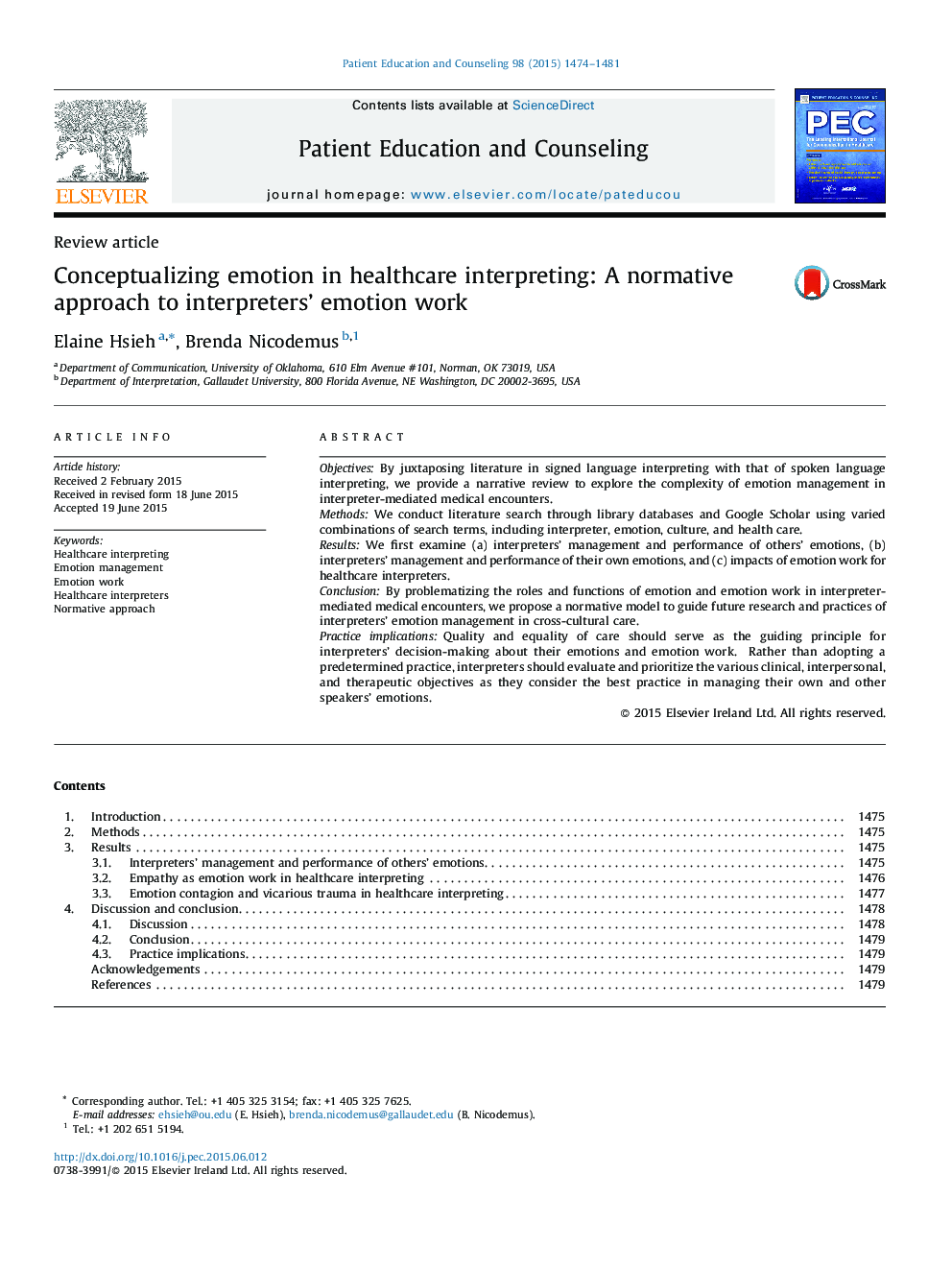| Article ID | Journal | Published Year | Pages | File Type |
|---|---|---|---|---|
| 6152780 | Patient Education and Counseling | 2015 | 8 Pages |
â¢Interpreters manage their own and other speakers' emotions in medical encounters.â¢Cultural differences in emotional rules can compromise the quality of care.â¢How interpreters express emotions involves consideration of various factors.â¢Quality and equality of care should guide interpreters' priorities and decisions.â¢A normative approach can predict and explain interpreters' emotion work.
ObjectivesBy juxtaposing literature in signed language interpreting with that of spoken language interpreting, we provide a narrative review to explore the complexity of emotion management in interpreter-mediated medical encounters.MethodsWe conduct literature search through library databases and Google Scholar using varied combinations of search terms, including interpreter, emotion, culture, and health care.ResultsWe first examine (a) interpreters' management and performance of others' emotions, (b) interpreters' management and performance of their own emotions, and (c) impacts of emotion work for healthcare interpreters.ConclusionBy problematizing the roles and functions of emotion and emotion work in interpreter-mediated medical encounters, we propose a normative model to guide future research and practices of interpreters' emotion management in cross-cultural care.Practice implicationsQuality and equality of care should serve as the guiding principle for interpreters' decision-making about their emotions and emotion work. Rather than adopting a predetermined practice, interpreters should evaluate and prioritize the various clinical, interpersonal, and therapeutic objectives as they consider the best practice in managing their own and other speakers' emotions.
